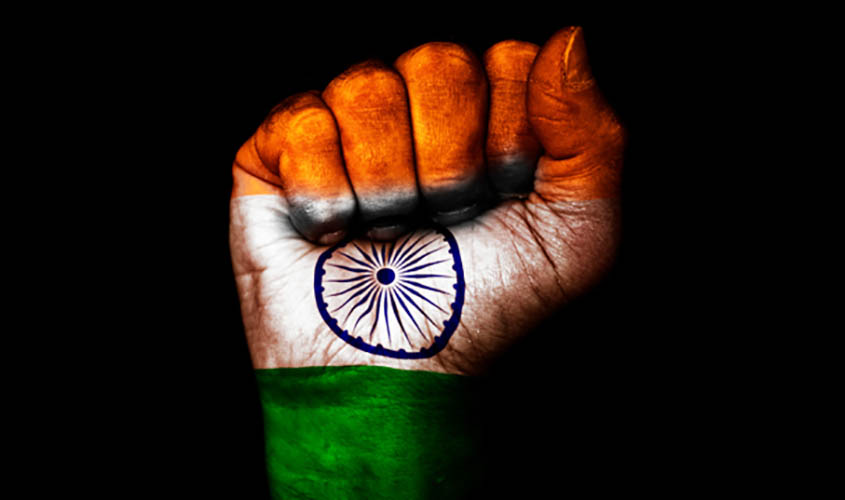Soon after the US Secretary of State Antony Blinken released the 2022 Annual Report to US Congress on International Religious Freedom, the Indian Ministry of External Affairs promptly rejected it on the ground that “such reports continue to be based on misinformation and flawed understanding.” The MEA also made it clear that India values its partnership with the US and “will continue to have frank exchanges on issues of concern” to India. The Indian irritation of this annual ritual since 1998 was, however, reflected in the statement by the MEA spokesperson that, “Motivated and biased commentary by some US officials only serves to undermine further the credibility of these reports.”
China was angrier in response to the report, because Secretary of State Blinken, while releasing the report, “repeated the old accusations of ‘genocide’ and ‘crimes against humanities’ without giving robust proof”. The spokesperson of the Chinese Foreign Ministry urged the “US to face up to and reflect on its own problems, respect the facts and truth, stop applying double standard” and stop meddling in China’s “internal affairs”.
While Secretary Blinken did not mention India in his remarks, his statement on China was bound to irk China. But it is clear that both China and India do not want the Office of International Religious Freedom of the US State Department to “meddle” in internal affairs of other countries by preparing such a report annually and basing it on “misinformation” and without “respect for the facts and truth”.
The distinction in reporting state of religious freedom in Western democracies and in Asia and Africa is crystal clear. The governments in Western democracies hardly do any wrong to the religious minorities in their countries, according to the report, but the government
One of the major flaws in the report is analysing the state of religious freedom in other countries by compiling information from “government officials, domestic and foreign religious groups, domestic and foreign nongovernmental organisations…journalists, academic experts, community leaders” and many others. Most of such information could be opinions, motivated allegations, or biased selection of facts. Analysing such information, announcing verdicts and recommending actions to the State Department is bound to be full of errors of judgement.
To be fair, the report acknowledges that “Motivations and accuracy of sources vary and the Department of State is not in a position to verify independently all information contained in the reports.” The State Department also has the “guiding principle” to “ensure that all relevant information is presented as objectively, thoroughly and fairly as possible”.
But the problem lies in processing information that are incomplete, are just reports with little or no verification and consists of opinions of individuals, groups, institutions, etc. For instance, information on incidents of communal riots, which are under judicial scrutiny, cannot be processed before the scrutiny is complete. Including mutual accusations and ill-informed opinions in data analysis can also lead to erroneous conclusions.
Another problem is dissemination of such reports indiscriminately in this age of information. By the time aggrieved governments react, clarify or correct the information or flawed conclusions, damage would have been done. Some countries may use such information to shape their views and policies towards other countries, rival countries can use such information for propaganda purposes and it may also lead to bad blood between peoples and countries.
If the Congress-mandated report is for internal consumption in the US Government, it is understandable. But releasing such reports for global consumption is problematic, because it is one sided selection, collection, collation and dissemination of information and pronouncing judgements on other societies.
The 2022 Report on India, nonetheless, does try to present a balanced picture to some extent. It accuses that there “were numerous reports during the year of violence by law enforcement authorities against members of religious minorities in multiple states”. Without going into the details of the case, it is already implicating the law enforcement authorities of wrongdoing. The report, for example, says that the authorities “for security reasons” did not allow Muharram procession in Srinagar. What is wrong in this action? If some people were arrested for violating the order, was it breach of religious freedom?
It is also ironic that the report cites a report by Indian American Muslim Council to allege denying religious freedom to Christian community in India! It says, in its “report covering events during the year, the nongovernmental organisation (NGO) Indian American Muslim Council (IAMC) said Christians were increasingly targeted by use of anti-conversion laws”! To appear balanced, the report also says that, “police arrested Hindus who attacked those accused of forcing others to convert”.
Moreover, the 2022 religious freedom report also cites the National Crime Record Bureau of India to underline that number of communal riots have come down to 378 in 2021 compared to 857 in 2020. Significantly, it also mentions the meeting between RSS Chief Mohan Bhagwat and five prominent members of the Muslim community to improve communal harmony.
Overall, the 2022 religious freedom report at least makes an attempt to be comprehensive in its coverage, but some of its demerits and drawbacks need course correction.
Chintamani Mahapatra is Founder Chairperson, Kalinga Institute of Indo-Pacific Studies and Former Professor at JNU.
India rejects 2022 Report on International Religious Freedom
इस शब्द का अर्थ जानिये
- Advertisement -

